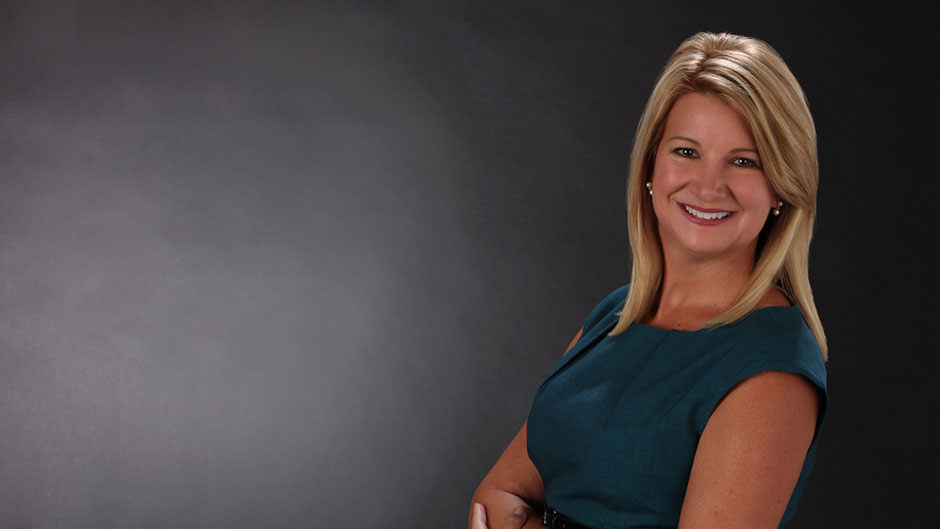Life is good for Roberta Goode.
She’s just finished a Zoom call with young engineering students about their senior design projects, guiding and encouraging them along the way. She’s getting ready for a month-long RV trip with her husband, her high school sweetheart, when she’ll spend time hiking, writing, working, and virtually mentoring students and other young women interested in STEM. And she’s just been inducted into the Florida Inventors Hall of Fame for an invention that has saved countless lives.
But life, and achieving success as an engineer, inventor, and entrepreneur, hasn’t always been easy for the double University of Miami alumna and adjunct professor in the College of Engineering.
Goode grew up in a small, impoverished town in Florida. Her father, a creative at heart, often invented things to make the family more comfortable, but was unable to provide a steady income for them. Goode recalls counting the cans of peas in the pantry to figure out how long her family would have food. “I was afraid of hunger, I was afraid that we couldn’t afford to go to the doctor, or that my parents wouldn’t be able to keep us,” she said. “Knowing that you’ll be cared for or that you’ll be warm–those are not things I had as a little girl.”
But that fear and the challenges that came along the way fueled Goode’s drive, ambition, and determination to build a better life for herself. “It motivated me,” she said. “I think if I'd been very comfortable, I probably wouldn't have the fire in my belly.”
She attended the University of Miami with a partial scholarship. The experience was challenging - the standards at the U were much higher than what she had been used to and she often felt like she was ‘out of her league.’ As the first in her family to attend college, she had little support. Still, Goode thrived, taking 18 credits at a time while working at the IT help desk.
Although she had originally wanted to become a doctor, she pivoted when she learned about biomedical engineering, a field that would allow her to combine her skills in technical problem-solving with her love for medicine, in order to leave the world “better than when she found it.” As a biology major, she completed the required core engineering coursework in less than two years before pursuing and earning a master’s degree in biomedical engineering.
“I had this epiphany,” she said. “I thought: if I become a doctor, I can help one person at a time. But if I design medical devices, I could help thousands of people every day at the same time.”
Goode began her professional career with Cordis, a small startup medical device company (now a part of Johnson & Johnson). There, she focused on sheath introducers—the catheter surgeons use as a “tunnel” to access cardiac systems to repair valves, insert stents, or conduct other diagnostic procedures—and invented a special valve for these catheters that prevents significant blood loss.
Her designs, for which she has four patents, are still used throughout the world and have significantly advanced cardiac surgery and diagnostics. They have reduced risks involved in these procedures and improved outcomes for countless patients.
Over the following decade, she continued to work for various biomedical engineering companies, often as one of few women in the room. She strategically chose jobs to learn about the different facets of the medical device industry–from research and development, to manufacturing and quality assurance, regulatory affairs, and finally business development–until finally deciding to start her own company, Goode Compliance International.
This time, it was the fear of not making it that threatened to hold her back. But Goode recalled a speech on the importance of risk-taking by a fellow inventor and U alumnus, Leonard Pinchuk, during an entrepreneurship forum hosted at the University.
“I looked back at those moments – standing in front of the Cox Science Building thinking I would never make it, where I grew up, what my mom did and how she overcame. And I just thought, I'm a survivor. I'm a fighter, I've always managed, and I believe I still can,” she said. “And it worked.”
In 18 months, she went from nursing a baby while working on specs in the middle of the night to employing 65 people. By 2017, when she decided to step away from the business to take care of her ailing mother, she had represented 17 of the 20 largest global medical device manufacturing companies, and she had hired over 135 graduates of the University of Miami’s biomedical engineering program.
“My definition of success is choice,” she said. “It's not money, it's not power. It's none of that stuff. It's choice. I’ve created a life where I can now choose what I wanted to do.”
What she chooses to focus on now are the projects that she loves and cares about: teaching at the U, where she’s been an adjunct professor for over 20 years; advocating for better end-of-life care and options for terminal patients in honor of her mother; and mentoring young women interested in careers in STEM, who, even today, often suffer from the persistent self-doubt of impostor syndrome.
As to what she would tell the little girl who was afraid and counting peas at home (and the thousands of people like her)? “I would say to her: your life will be difficult and then it will be more rewarding than you can possibly imagine. So, chin up and don't be afraid. Welcome the difficulty and welcome the adversity. Because you're going to be so strong, and it's going to prepare you to not only change your own life, but to change the lives of so many other people for the better.”

